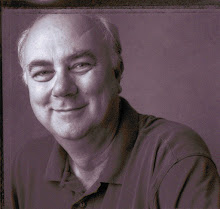What Was the First Record You Ever Bought?
The
First Record I Ever Bought
I made
a note of his answer, thinking at the time that in the next week or two I might
write a column about it.
Well
here we are 17 years and seven months later and I’m finally getting around to
writing about it.
I wrote
in my notes: “He ducked the question, mentioning he bought the Beatles and the Stones
but the first seminal album he bought was ‘East West’ by The Paul Butterfield
Blues Band. He wanted us to think he was cool even as a kid.”
I looked
up the album: “East West” came out in 1966 when Dan was 14. That was not the
first record Dan Aykroyd ever bought. I’m close in age to Aykroyd and I bought
my first record when I was seven, not 14.
So, belatedly,
that is the topic for today: What was the first record you ever bought?
I think
it’s a great question and apparently others have agreed in the years since
2005. I found dozens of articles online about that very topic. In 2018 – 13 years
after my intended column – BuzzFeed turned it into one of their famous
listicles (list/article) titled “22 People Tell Us the Story Behind the Very
First Album They Ever Bought.”
I’ll
tell you the first record I ever bought. I don’t need to impress anyone with my
musical precocity, how cool I was. I wasn’t precocious and I wasn’t cool.
The First
Record I Ever Bought was Johnnie Ray’s “Paths of Paradise,” Columbia #40435,
released in February 1955.
I still
have it. It’s chipped on one edge but still playable. If you have a turntable
that will play 78s, which I don’t.
My recollection
is that I saw Johnnie Ray perform the song on “General Electric Theater” in
early 1955. After the show, I asked my father if he would buy me the record and
he went to McCrory’s downtown during his lunch hour and bought the 78 for 89
cents (that’s what 78s sold for in 1955). He and my mother already had a stack
of 78s, mostly big band and country. “Paths of Paradise” was more a weeper.
Thanks
to the exposure on “G.E. Theatre,” “Paths of Paradise” entered the CASH BOX chart
of Top 50 Best-Selling Singles on February 19, 1955 at number 50.
And I
helped make it a best-selling single.
For me
that began a long history of buying records.
For Christmas
that year I got a 45 rpm record player, a device about the size of a lunchbox
with a big fat spindle in the middle that matched that big fat hole in the
center of a 45 record.
And I
began collecting 45s.
I soon
acquired a green metal box with dividers and an index sheet to list 60 records.
I was more organized as a kid than I am today.
My
45 record collection might be called - charitably - eclectic. Which is a nice
way of saying there’s some good stuff and there’s some bad stuff and there’s
some stuff no one has heard of since it was released in fifties. In that last
category I’m thinking in particular of a dreadful spoof titled “Cholley-Oop,”
recorded by the Hong Kong White Sox for the Trans-World label, as an answer to
the Hollywood Argyle’s hit “Alley-Oop.”
I
have no idea why I bought that record.
The first
record in my 45 box – number one on the hand-written index sheet - was an
Atlantic label hit: “Jim Dandy” by Lavern Baker, which was released in Feb.
1957. Then there was “Little Darling” by the Diamonds, “Poor Little Fool” by
Ricky Nelson, “Baby Talk” by Jan and Dean.
Then
we hit the bad stuff.
Of
my sixty 45s a good 20 of them are on the Promenade label. There’s a reason
most people have never heard of the Promenade label. They put out crap. They
took the hits of the day - say “Till I Kissed You” by the Everly Brothers - and
covered them by artists you’ve never heard of. They’d pile six hits on a 45,
three on a side, and dumb people like me would buy them, thinking I was getting
a real deal.
Six
hits for a dollar instead of one hit and a B-side for a dollar.
Then
I’d get them home, play them, hate them, never play them again, and buy another
Promenade cover 45 the next time I had saved up a dollar.
On
my Promenade 45, “There Goes My Baby” isn’t by the Drifters but by the Glitters.
“Sleepwalk” was by Jackie & Johnny not Santo & Johnny. And “The Twist”
was recorded not by Chubby Checker but by Tubby Chess.
In
reality there was no Tubby Chess. It was studio musicians who recorded the
track. The company later released the same record under the name Robbie Robber
and the Hi-Jackers.
If I
had bought Danny and the Juniors’ “At the Hop” on the ABC-Paramount label and
it was in pristine shape, I could sell it on eBay today for $1,000 (plus $5
shipping).
But
no, I bought the Promenade label version of “At the Hop” by the Wright
Brothers. I found a guy on the Internet who also has a copy of “At the Hop” by
the Wright Brothers.
He’s
giving it away.




.jpg)



